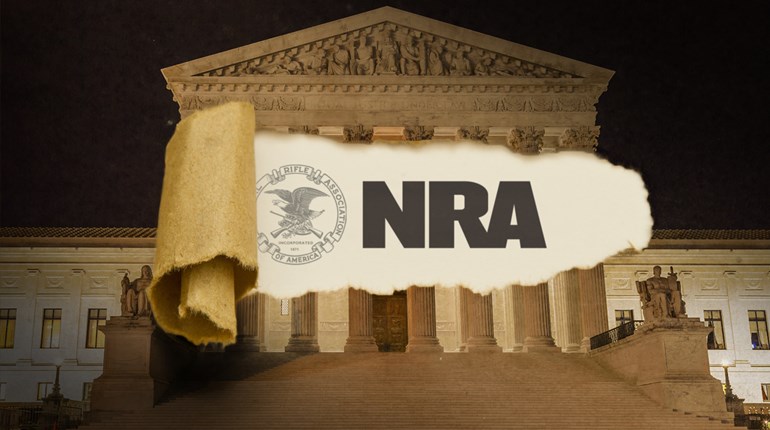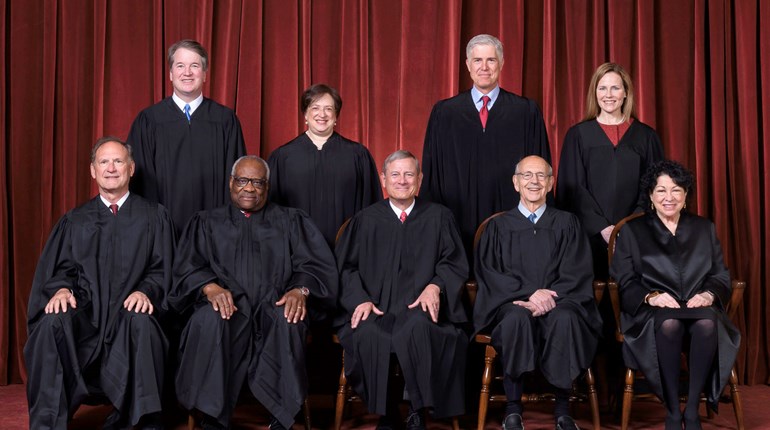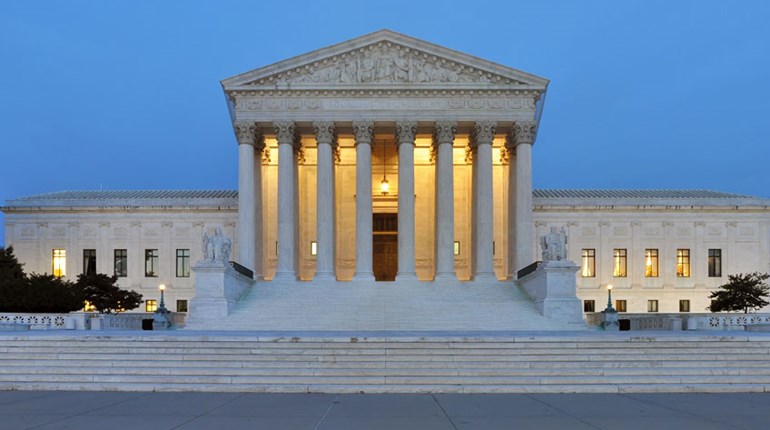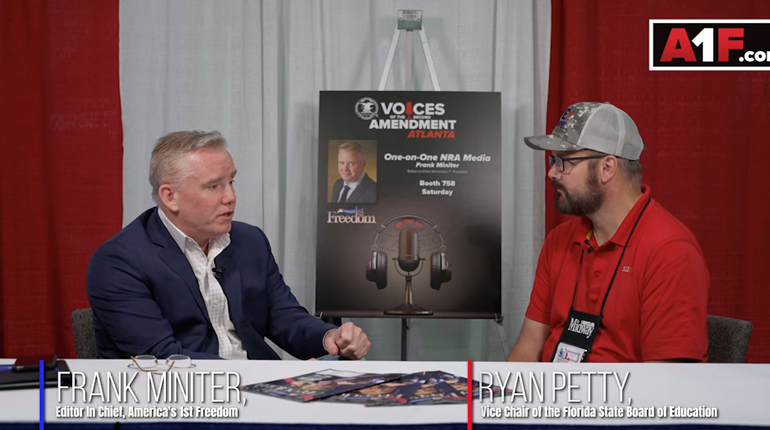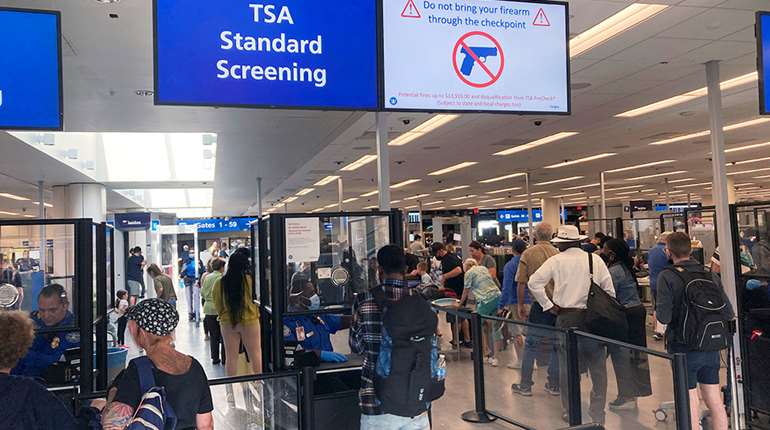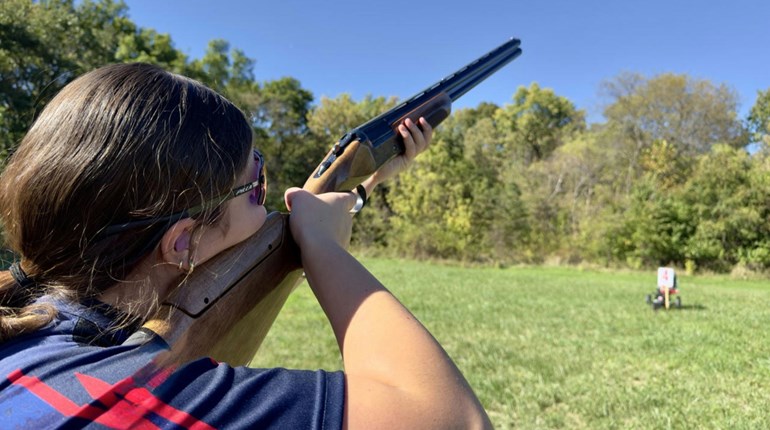
First appeared in America’s 1st Freedom magazine, June 2010.
In January, the U.S. Supreme Court restored the free speech rights of members of NRA and other groups in the landmark case Citizens United v. Federal Election Commission. Now, some in Congress are floating plans to restrict your First Amendment rights once again.
Some legal background: The National Rifle Association, like almost every major civil rights group, is organized as a corporation. Under the 2002 campaign finance law, it was a crime for unions or corporations (including NRA) to spend money on television or radio advertisements, and on communications through many other media, if the communications mentioned the name of a federal candidate within a 60-day period before a general election, or within the 30 days before a primary.It’s odd to be lectured to about campaign finance reform from a guy who has raised a billion dollars.
The restrictions severely harmed the ability of NRA to communicate with the public about important issues. For example, if Congress was in session in mid-September, it was against the law for NRA to buy a radio ad on a Saturday morning hunting program urging sportsmen to contact their representatives or senators who were candidates for federal office to vote against an anti-gun bill.
In other words, for 90 days every election year, NRA was subject to special censorship, forbidding NRA from using your dues or your extra contributions to inform the public about what federal elected officials or candidates were doing to defend or infringe your Second Amendment rights.
During the congressional debate on the law, many advocates of the censorship law expressed the specific, stated intent of muzzling NRA and its members.
A union or corporation, including NRA, could still buy ads if it set up a separate Political Action Committee (PAC). But the PAC had to raise its own money from separate donations, and could not use a penny from the group’s general treasury. These restrictions greatly reduced NRA’s ability to speak to the public during election campaigns.
In Citizens United, a 5-4 majority of the Supreme Court ruled that the censorship restrictions violated the First Amendment. Justice Anthony Kennedy’s opinion for the Supreme Court observed that the 2002 law would have made it a crime for NRA to distribute a book criticizing a federal candidate’s support for hand-gun prohibition.
When the Supreme Court overturned the ill-conceived campaign finance law, political speech was freed—but a counterattack has already begun. In his January State of the Union address, President Obama sharply criticized the decision, incorrectly claiming that “the Supreme Court reversed a century of law.” Actually, Citizens United merely overruled portions of two cases (the oldest of which was from 1990) and part of a federal statute that was decades newer than the president implied.
Candidate Barack Obama was lavishly financed by Wall Street, Hollywood and other enclaves of the super-rich. As South Carolina Sen. Lindsey Graham quipped, “It’s odd to be lectured to about campaign finance reform from a guy who has raised a billion dollars.”
Supplementing the torrent of tycoon wealth that flowed directly into the Obama campaign coffers, hundreds of millions more were spent on Obama’s behalf by anti-gun billionaire financier George Soros and his plutocrat friends using special loopholes in the Campaign Finance law.
It was no surprise that Soros and his cronies found the loopholes. They had spent years investing in the campaign to restrict the First Amendment. Soros-financed operatives had worked closely with gullible members of the media to create the phony impression that there was a big public demand for speech restriction.
One part of the Sorosphere, the Brennan Center for Justice at New York University, has long been the tip of the spear in promoting the control of political speech. During the congressional debate on the law, many advocates of the censorship law expressed the specific, stated intent of muzzling NRA and its members.
Stanley Fish, online columnist for The New York Times, attended the Brennan Center’s March 27 conference about Citizens United. Fish summarized the views of most conference participants that political speech “is not a stand-alone commodity of undoubted value that we can’t have too much of.” The conference attendees, Fish said, “said things like there is no general right of free speech …”
Fish summarized the Brennan crowd’s confidence that it could reinstitute the censorship regime: “This crowd thinks that it is going to win … At most of the conferences I attend, talk like that would be little more than blowing smoke. But in this one the speakers and respondents were high-profile law professors; deans of prestigious law schools; and lawyers who have argued before the [Supreme] Court and interacted, formally and informally, with its members. It occurred to me as I left at the end of the day that as a result of what had been said and proposed, something in the world might actually change. The very thought made me nervous.”
Meanwhile in Congress, as this issue goes to press, opponents of Citizens United are preparing to unveil new legislation to undermine the decision.
According to media reports, one proposal would mandate that the chief executive of an organization personally appear in any commercial sponsored by the group.
Supposedly, the purpose is to prevent deception. But this makes no sense as applied to NRA. NRA advertisements always let you know that they’re paid for by NRA. Sometimes, NRA CEO Wayne LaPierre appears as a spokesman in a commercial, while in others, it’s Chris W. Cox, chairman of NRA’s Political Victory Fund and executive director of NRA-ILA. Sometimes, NRA may choose to use someone else entirely. For example, Charlton Heston appeared in many NRA commercials during his long service to the Second Amendment.
The proposal would mean that in 1997, for example, when Heston—one of the most respected men in America—was an NRA officer but not president or CEO, an NRA commercial would have been required to cut the amount of time that Heston had to speak about the issues.
A second proposal is much more insidious. According to The New York Times, a “reform” bill might require advocacy groups (such as NRA) “to identify all their financial donors or set up separate accounts to handle political spending and identify the donors to that account.”
Simply put: If NRA wants to use its general funds from member dues to speak out during election season, then NRA would have to give the federal government a list of every single NRA member.
So if your boss hates guns, he could just see if your name is on the federal list of NRA members, and he could then start thinking up a pretext to fire you or to deny you the promotion that you earned.
Local anti-gun newspapers could publish a list of all NRA members in the area, just as some newspapers have done with Right-to-Carry permit holders. The list would, in effect, tell burglars which homes to invade when nobody is home in order to steal a gun—which is why several states have recently passed laws to make permit holders’ names confidential. These restrictions greatly reduced NRA’s ability to speak to the public during election campaigns.
The Supreme Court has recognized that the First Amendment protects the right of association, including the right of organizations not to be ordered to give the government a list of their members. The first cases on the freedom of association—NAACP v. Alabama (1958) and Bates v. City of Little Rock (1960)—involved attempts by racist governments to obtain the membership rosters of local chapters of the National Association for the Advancement of Colored People. (Mr. L.C. Bates, by the way, used his .45 semi-auto to defend his family from the Ku Klux Klan, which burned three crosses on the Bates’ front lawn.)
Yet a future Obama-dominated Supreme Court might distinguish the new law from the laws challenged in the NAACP cases. Obama-appointed justices might claim that the right of private association does not apply when an organization spends money on political speech during election campaigns.
In the coming months, the defense of the First Amendment will be a crucial issue in Congress.
Despite what much of the “mainstream” media told you, Citizens United has nothing to do with contributions to political campaigns. Citizens United only protects the right of unions and corporations, including NRA, to make independent expenditures before elections. By participating in civil rights organizations such as NRA, ordinary citizens can combine their small donations to speak as one, so that all the American people can hear their message.
The media (who were not affected by the campaign finance law) will probably tell you that the only corporations with anything at stake in the debate are big businesses. But the truth is that a top target of many speech controllers is you and your participation with millions of other Americans in the National Rifle Association. Fortunately, NRA members can be confident that NRA will continue, as it has for years, to defend its members’ privacy and its ability to communicate freely with the American people.













